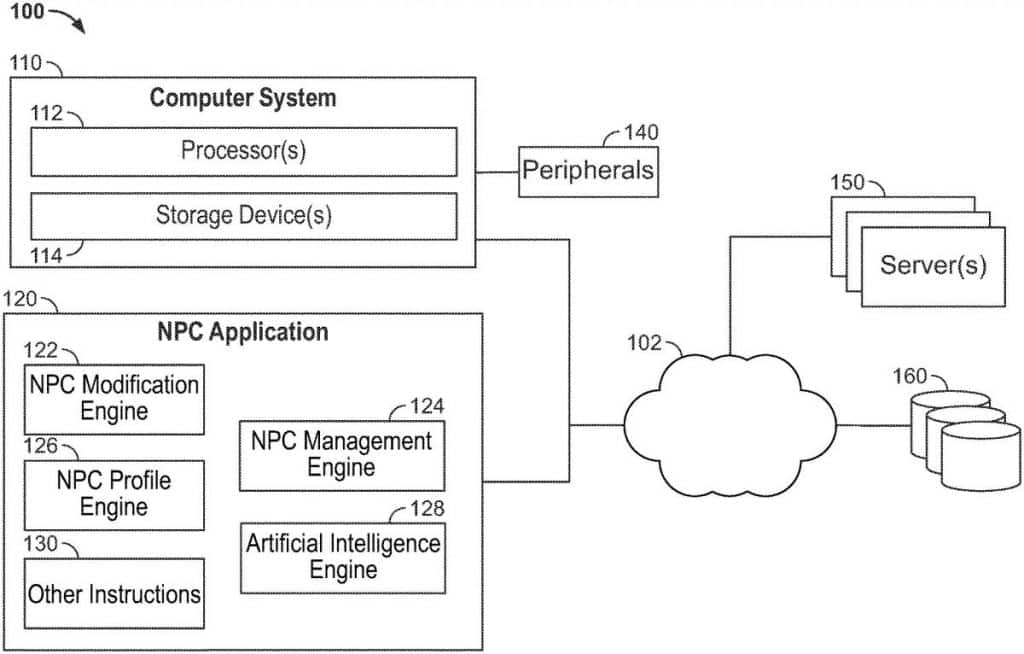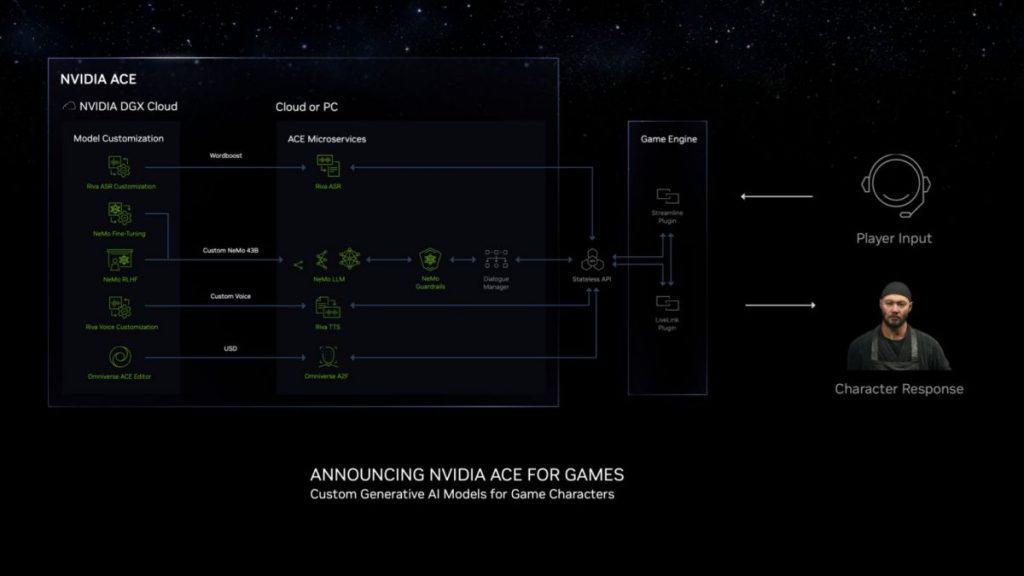Activision Blizzard Granted Patent for AI-Generated NPCs, Pioneering Realism in Video Games


In Brief
Activision Blizzard has secured a patent for an AI system to generate improved non-player characters.
The AI, trained on real player behavior and data, elevates NPCs to new levels of lifelike and engaging interactions.
Alongside other companies like NVIDIA, who also leverage AI for intelligent NPCs, there are exciting advancements in AI-driven character development.

Activision Blizzard has secured a patent for an innovative AI-driven system designed to generate enhanced non-player characters (NPCs) in video games. By leveraging real player behavior and data, the technology enables the creation of NPCs that boast heightened realism, interactivity, and difficulty.
However, Activision is not the only company seeking to implement real-player-based characters in their games. So could AI-based realistic and engaging NPCs signify a new era of gaming?
On June 20, 2023, Activision Blizzard secured a patent titled “Systems and Methods for Generating Improved Non-Player Characters,” with the potential to revolutionize the future of video games. The patent introduces an AI-driven system that enhances non-playable characters making them more lifelike and responsive. Notably, the patent was registered in 2019 but only was approved very recently.

The AI tracks and correlates player behavior with game outcomes, responses from other players, and the degree of player engagement. This data is used to create NPCs that are more likely to respond in a way that is consistent with player expectations. For example, if a player is known to be aggressive, the AI-generated NPC may be more likely to fight back when attacked.
AI can also be used to create NPCs that are more diverse and interesting. For example, the AI could be trained on data from players of different cultures and backgrounds. This would allow AI to generate NPCs that reflect the diversity of the gaming community.
NVIDIA is also using AI to create more intelligent NPCs in games. The company’s Avatar Cloud Engine (ACE) for Games is a custom AI model foundry service that allows developers to build and deploy customized speech, conversation, and animation AI models in their games.
First, behavior cloning is used to enable the base language model to perform role-playing tasks according to instructions. Then, reinforcement learning from human feedback (RLHF) is used to further align the NPC’s behavior with expectations. Finally, NeMo Guardrails is used to add programmable rules for NPCs, ensuring they are accurate, appropriate, on-topic, and secure.

Risks Associated with AI-Generated NPCs
As machine learning algorithms and models progress, aiming to create more human-like interactions in video games, concerns arise about potential human costs associated with this advancement. While AI tools might streamline certain processes, others worry that it could raise barriers for aspiring developers trying to enter the already competitive gaming industry.
Moreover, as the line between AI and human players blurs, questions emerge about whether defeating an AI that is indistinguishable from a human player would provide the same sense of satisfaction in the long run. Besides, there are ethical considerations surrounding AIs that learn and emulate a player’s behavior. Is this level of interaction desired, or does it encroach upon the value of privacy? Initiating a thoughtful dialogue, these questions prompt us to reflect on the potential consequences and trade-offs as we envision a gaming future with NPCs capable of genuine conversations and understanding.
Read more:
- Blizzard aims to employ AI to create games that are unique to each player
- Activision Blizzard president Daniel Alegre to become the new CEO of Yuga Labs
- FTC looking to ruin Microsoft’s Activision Blizzard deal
- Researchers have developed VR headset for mice
Disclaimer
In line with the Trust Project guidelines, please note that the information provided on this page is not intended to be and should not be interpreted as legal, tax, investment, financial, or any other form of advice. It is important to only invest what you can afford to lose and to seek independent financial advice if you have any doubts. For further information, we suggest referring to the terms and conditions as well as the help and support pages provided by the issuer or advertiser. MetaversePost is committed to accurate, unbiased reporting, but market conditions are subject to change without notice.
About The Author
Agne is a journalist who covers the latest trends and developments in the metaverse, AI, and Web3 industries for the Metaverse Post. Her passion for storytelling has led her to conduct numerous interviews with experts in these fields, always seeking to uncover exciting and engaging stories. Agne holds a Bachelor’s degree in literature and has an extensive background in writing about a wide range of topics including travel, art, and culture. She has also volunteered as an editor for the animal rights organization, where she helped raise awareness about animal welfare issues. Contact her on agnec@mpost.io.
More articles

Agne is a journalist who covers the latest trends and developments in the metaverse, AI, and Web3 industries for the Metaverse Post. Her passion for storytelling has led her to conduct numerous interviews with experts in these fields, always seeking to uncover exciting and engaging stories. Agne holds a Bachelor’s degree in literature and has an extensive background in writing about a wide range of topics including travel, art, and culture. She has also volunteered as an editor for the animal rights organization, where she helped raise awareness about animal welfare issues. Contact her on agnec@mpost.io.





















































